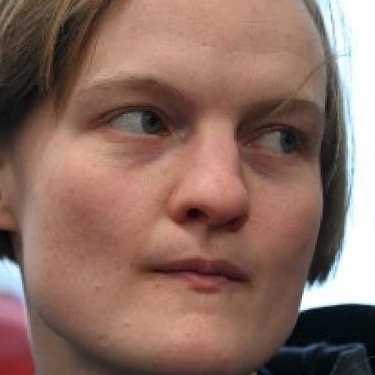Russian exile journalist treated like criminal on landing in Belgrade

Reporters Without Borders (RSF) condemns Serbia’s arrest of Natasha Tyshkevich, the former co-editor of the Russian student newspaper DOXA, and the deplorable conditions in which the authorities held her. RSF is alarmed by a potentially deliberate attempt to intimidate Russian exile journalists.
After fleeing Russia last year to escape an arbitrary prison sentence and finding a refuge in Germany, Natasha Tyshkevich had not expected to be locked up in a European country. Nonetheless, because she did not know she needed a visa in addition to her travel document provided by Germany, she was held for nearly two days by the Serbian authorities at Belgrade airport after landing there on 7 August.
“While it is legitimate to deny entry to a person who does not have a visa, placing them in police custody for more than 40 hours is a disproportionate measure. By treating Natasha Tyshkevich as a criminal, were the Serbian authorities trying to intimidate Russian exile journalists in order to please the Kremlin?
When Tyshkevich flew to Belgrade on 7 August with the aim of visiting friends in Serbia, she only had the travel document provided by Germany. The Russian authorities had confiscated her passport as part of proceedings against her and her three fellow editors at DOXA. It was only when Serbian immigration officials denied her entry that she discovered that her travel document was not valid without a visa outside the European Union.
Instead of obliging Tyshkevich - who was in an airport transit area - to leave on a flight out of the country, the authorities arrested her and held her for more than 40 hours while failing to provide her with almost any food. When she tearfully resisted entering the cell where they held her, the guards threatened to send her to “a real prison.” On 9 August, she was finally put on a flight back to Malta, from where she had flown to Serbia.
Tyshkevich left Russia in August 2022, a few months after being sentenced to two years of forced labour, for a video published more than a year before showing the intimidation methods used by Russian security forces against students seeking to participate in demonstrations in support of detained Kremlin opponent Alexei Navalny. She initially sought refuge in Armenia before moving to Germany. The Russian authorities issued a warrant for her arrest in November 2022.
According to the Serbian independent outlet Nova.rs, members of the Russian political opposition have been convicted in Russia thanks to surveillance carried out by the Serbian intelligence services. This operation was reportedly run in Serbia by Aleksandar Vulin, the then interior minister and current head of a Serbian spy agency, who is the subject of US sanctions.
